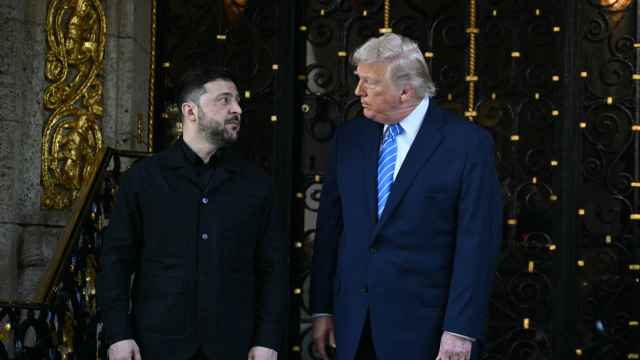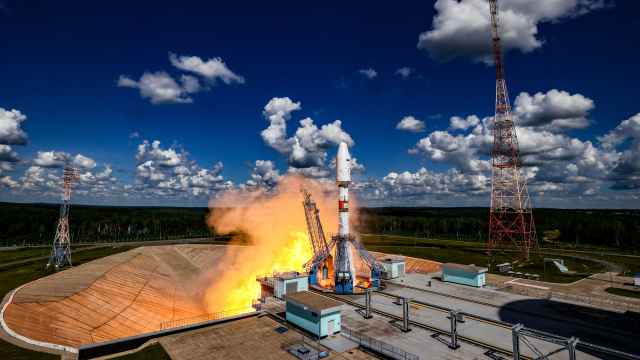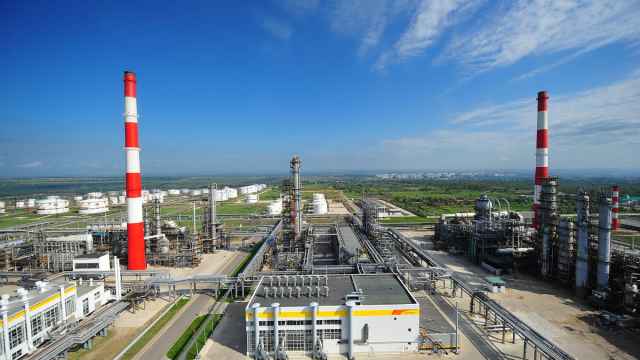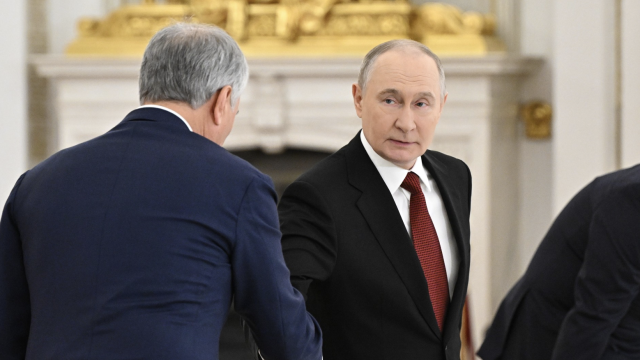Investigators probing the deadly bombing at a Moscow airport are looking at up to 10 people from the volatile Caucasus region as possible suspects, a Russian state news agency reported Thursday.
Suspicions in the Monday blast at Domodedovo Airport that killed 35 people and wounded 180 initially fell on Chechen rebels who have claimed responsibility for an array of deadly attacks over the years, including ones against the Moscow subway and at the same airport.
No one has yet claimed responsibility for this attack and Prime Minister Vladimir Putin, perhaps sensitive about his failure to contain Chechnya's Islamist rebellion, insisted Wednesday there was no initial indication of a Chechen connection.
However, Chechen rebels have inspired Islamist insurgent activity elsewhere in the Caucasus and the state RIA Novosti agency said up to 10 people from there are being viwewed as possible suspects.
The Kommersant newspaper reported Thursday that police attention is focusing on an insurgent group called the Nogai Brigade, which reportedly observes the strict Wahhabi form of Islam. The group emerged in the early part of the last decade in the Stavropol region and sided with Chechen separatist groups.
Kommersant, citing a source close to the bombing probe, said an ethnic Russian member of the group was of particular interest to investigators. The man is believed to be connected to a woman arrested in January for allegedly planning a suicide bombing in Moscow.
That arrest followed a New Year's Eve explosion on the outskirts of Moscow that killed one woman. The newspaper Moskovsky Komsomolets said the victim was believed to be preparing a bomb to attack a holiday gathering but it was inadvertently triggered early when the cell-phone provider sent a holiday greetings text message.
Authorities have been tight-lipped about the Moscow airport bombing investigation. No consistent account of what happened has emerged, with reports variously saying it was a male or female suicide bomber, or a couple, or a bomb that was to be remotely detonated but exploded prematurely.
The dearth of official information has prompted discontent among many Russians.
"The authorities create grounds for the increase in conspiracy theorists," prominent opposition Ilya Yashin wrote in his blog Thursday. "Their opaque nature and unwillingness to answer all the questions lead to a rise in distrust and anger among the general public."
The website Kavkaz Center, where Chechen insurgents have previously issued claims of responsibility, appeared irritated that Putin dismissed Chechen involvement, suggesting that Russian authorities simply want to ignore that insurgents still exist despite two full-scale wars since 1994.
In recent years, the province of Dagestan east of Chechnya has seen the most frequent separatist-connected bloodshed. On Thursday, an unidentified gunman shot dead a district police chief and his deputy in the Babayurt region of Dagestan near Chechnya, said regional police spokesman Vyacheslav Gasanov. He said the assailant was killed in a subsequent skirmish with police.
On Thursday, more high-ranking Russian transport officials were fired in the wake of the bombing, including the head of air transport security for the western Russia region that includes Moscow. Russian President Dmitry Medvedev fired a top transport police official a day earlier and several lower-ranking transport police were dismissed.
Medvedev said after the blast that Domodedovo's security was in a "state of anarchy."
The attack stained Russia's image at a vulnerable time, coming just before Medvedev's appearance at the Davos World Economic Forum to try to woo international investment. But the Russian president remained defiant.
"Those who committed this heinous act ... expected that the terrorist act would bring Russia to its knees ... but they miscalculated," Medvedev said in Davos. "(It) only strengthens our resolve to find an effective protection against international terror."
A Message from The Moscow Times:
Dear readers,
We are facing unprecedented challenges. Russia's Prosecutor General's Office has designated The Moscow Times as an "undesirable" organization, criminalizing our work and putting our staff at risk of prosecution. This follows our earlier unjust labeling as a "foreign agent."
These actions are direct attempts to silence independent journalism in Russia. The authorities claim our work "discredits the decisions of the Russian leadership." We see things differently: we strive to provide accurate, unbiased reporting on Russia.
We, the journalists of The Moscow Times, refuse to be silenced. But to continue our work, we need your help.
Your support, no matter how small, makes a world of difference. If you can, please support us monthly starting from just $2. It's quick to set up, and every contribution makes a significant impact.
By supporting The Moscow Times, you're defending open, independent journalism in the face of repression. Thank you for standing with us.
Remind me later.





